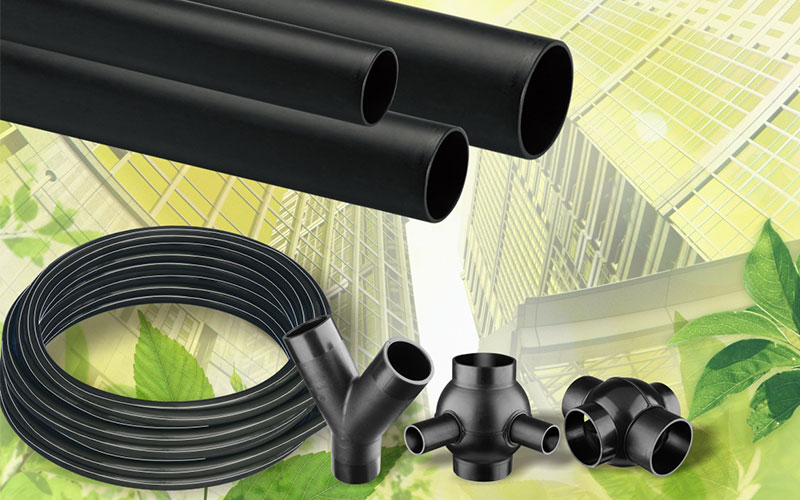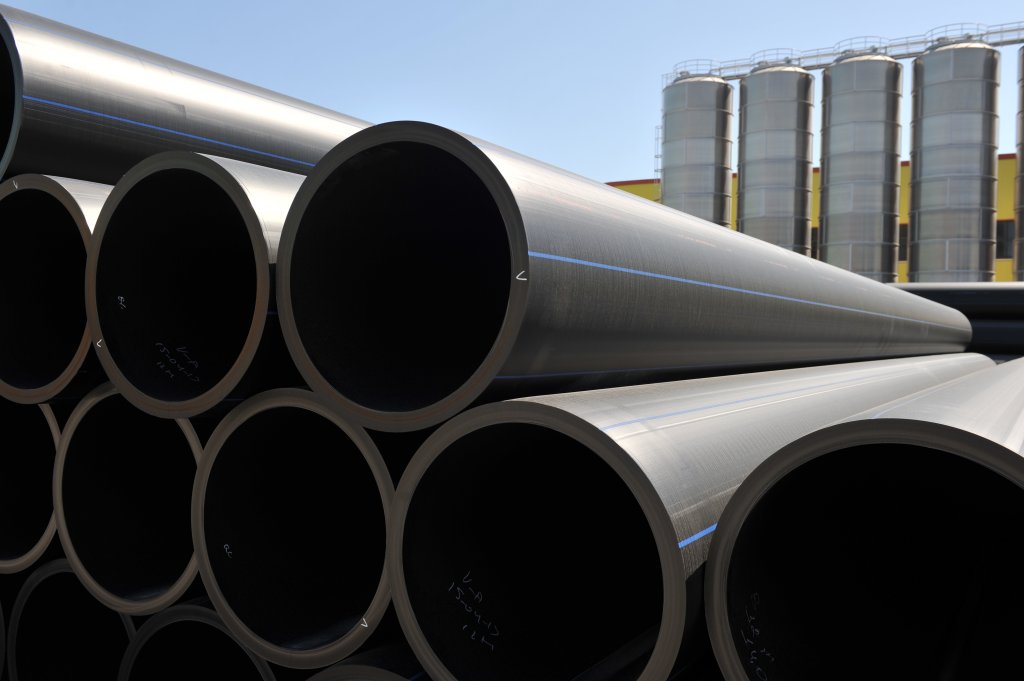Texas hdpe pipe manufacturer: Green Manufacturing
Wiki Article
A Comprehensive Overview to the Various Usages of HDPE Pipeline in Building And Construction and Industry
HDPE pipes have become a critical component in contemporary building and construction and commercial applications. Their distinct properties, such as resistance to corrosion and light-weight layout, make them ideal for a vast array of uses. From water supply systems to farming watering, HDPE pipelines use remedies that boost performance and sustainability. Recognizing their varied applications is crucial for professionals seeking to maximize facilities. What certain benefits do these pipelines bring to each industry?Water Supply and Circulation Solutions
Supply of water and circulation systems are essential elements of urban infrastructure, frequently depending on high-density polyethylene (HDPE) pipelines for their longevity and efficiency. These systems transportation drinkable water from treatment centers to consumers, making sure ease of access and safety. HDPE pipes are preferred for their resistance to deterioration, chemicals, and severe temperatures, which boosts their long life and lowers upkeep costs. Furthermore, their light-weight nature permits less complicated installment and transportation, making them suitable for numerous urban and rural applications.The adaptability of HDPE pipes allows them to be installed in tight rooms and around obstacles, decreasing the demand for comprehensive excavation (Pipe Manufacturing Midland TX). In addition, their smooth interior surface decreases friction losses, enhancing water flow rates. As cities continue to expand, the demand for trusted water systems enhances, placing HDPE pipelines as a sustainable option for contemporary framework tasks. Their proven record makes them a recommended selection amongst engineers and urban organizers alike
Wastewater Management and Treatment
Reliable wastewater management and therapy are necessary for maintaining public health and ecological high quality. HDPE pipelines play an essential function in this process due to their longevity, resistance to deterioration, and ability to withstand harsh chemicals. These pipes are commonly utilized in numerous applications, consisting of sewer systems, stormwater water drainage, and wastewater treatment facilities. Their light-weight nature helps with less complicated setup and transportation, reducing labor costs and time.On top of that, HDPE pipelines have a smooth interior surface area that lessens friction loss, promoting efficient flow prices. They are likewise much less prone to leakages and failings compared to traditional materials, making certain that pollutants are had effectively. Moreover, their versatility permits flexibility in various soil problems, making them suitable for diverse environmental setups. As industries significantly focus on sustainable techniques, the use of HDPE pipelines in wastewater management systems straightens with objectives for minimizing environmental impact and improving source recuperation.
Agricultural Irrigation Solutions
In agricultural settings, reliable watering options are crucial for maximizing plant you can find out more yields and handling water sources. HDPE (High-Density Polyethylene) pipes play a vital function in try here modern-day watering systems as a result of their toughness, flexibility, and resistance to rust. Their capability to withstand high pressures makes them suitable for both surface and subsurface irrigation applications, making sure uniform water circulation throughout areas.Farmers can utilize HDPE pipes in drip irrigation systems, which provide water directly to plant roots, reducing waste and promoting healthy growth. In addition, these pipelines are light-weight and very easy to set up, minimizing labor expenses and setup time. Their long life expectancy and low upkeep demands additionally improve their appeal in agricultural techniques.
HDPE pipes are environmentally pleasant, as they can be reused and do not leach hazardous chemicals right into the dirt. This makes them a lasting choice for farmers aiming to embrace green agricultural approaches while maximizing productivity.
Industrial Applications and Processes
Adaptability is a characteristic of HDPE pipes, making them vital in various commercial applications and procedures. These pipelines are commonly utilized in chemical handling sectors as a result of their superb resistance to a vast array of harsh substances. HDPE's light-weight nature, official source incorporated with high tensile toughness, permits simple installation and long-lasting efficiency sought after settings.In the oil and gas industry, HDPE pipelines play a necessary role in moving hydrocarbons and gases, many thanks to their durability and versatility - Texas hdpe pipe manufacturer. Furthermore, they are used in mining procedures for the transportation of slurry and other materials, where standard piping systems may fail
HDPE pipes are increasingly utilized in producing facilities for water supply lines and wastewater administration. Their capacity to hold up against severe temperature levels and stress makes them ideal for a selection of industrial procedures. On the whole, HDPE pipelines add substantially to performance and safety throughout varied commercial applications.
Stormwater Administration and Drain Solutions
Stormwater administration and drain systems are essential parts in metropolitan facilities, developed to handle excess rainfall and decrease flooding risks. High-density polyethylene (HDPE) pipes are significantly made use of in these systems because of their toughness, versatility, and resistance to corrosion. These pipelines efficiently transfer stormwater far from inhabited areas, minimizing surface drainage and protecting against waterlogging.HDPE's lightweight nature helps with easier installation, reducing labor prices and building time. In addition, its resistance to chemicals and environmental stressors assurances long life and dependability in numerous environments. In addition to traditional drain applications, HDPE pipes are additionally employed in cutting-edge services such as eco-friendly infrastructure, which consists of rain gardens and absorptive pavements.

Frequently Asked Inquiries
Exactly How Does HDPE Pipeline Contrast to PVC Pipeline in Price?
In general, HDPE pipe often tends to be a lot more costly than PVC pipe as a result of its boosted resilience and adaptability. Lasting price factors to consider, such as maintenance and lifespan, may favor HDPE in specific applications.What Is the Life-span of HDPE Pipeline Under Numerous Conditions?
HDPE pipelines usually have a lifespan of 50 to 100 years, depending upon environmental problems, setup techniques, and use. Variables such as temperature, dirt type, and direct exposure to chemicals can greatly influence their toughness.Can HDPE Piping Be Recycled After Usage?
Yes, HDPE pipelines can be reused after usage. The reusing procedure involves melting down the material, allowing it to be repurposed right into brand-new items, therefore advertising sustainability and lowering ecological influence associated with plastic waste.Exist Any Specific Installation Challenges With HDPE Pipelines?
Installment obstacles with HDPE pipelines consist of correct jointing strategies, ensuring adequate trench problems, and managing thermal growth. Additionally, knowledgeable labor is called for to take care of specific equipment, which can complicate the installment process in numerous environments.
What Certifications Should I Search For When Getting HDPE Pipings?
When purchasing HDPE pipes, one should look for certifications such as ASTM, AASHTO, and ISO, which validate top quality and conformity with market requirements, guaranteeing resilience and performance in numerous applications. - American Plastics HDPE Pipe ManufacturingReport this wiki page